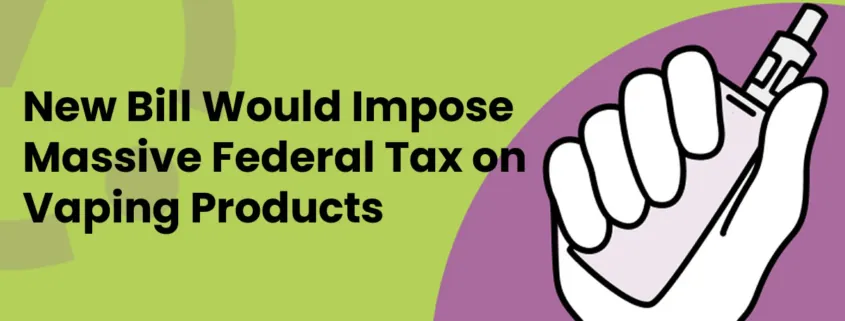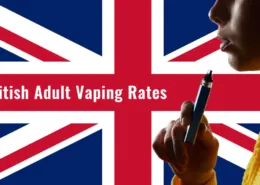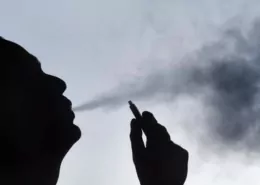New Bill Would Impose Massive Federal Tax on Vaping Products
A new bill introduced in Congress proposes the first-ever federal excise tax on vaping products and nicotine pouches. While aimed at “tax equity,” the legislation would disproportionately target vaping, imposing higher rates than on traditional cigarettes. Vaping advocates have mobilized against the bill, arguing it threatens to make e-cigarettes unaffordable for adult smokers.
The Push for Nicotine Tax Equity
The bill’s sponsors in the House and Senate say the goal is a uniform nicotine tax rate based on product nicotine concentrations. Currently, vaping products face no federal tax while cigarettes and other nicotine sources do. The lack of vaping taxes motivated the bill.
However, the proposed flat tax of $100 per 1,810mg of nicotine would excessively impact vaping compared to other nicotine products. A single Juul pod would cost $2.25 in taxes versus $2 for a pack of cigarettes. The tax on a 60mL vape juice bottle would equal a cigarette carton.
Vaping Advocates Mobilize Against the Bill
Given the severe impact on vaping affordability, advocacy groups quickly denounced the legislation. The Consumer Advocates for Smoke-free Alternatives Association (CASAA) issued an urgent call to action, warning the bill could make vaping more expensive than smoking for adult smokers seeking an alternative.
CASAA and others argue taxing vapes at drastically higher rates than traditional cigarettes contradicts public health goals. Price parity with deadly combustible cigarettes disincentivizes switching for current adult smokers. Critics claim the bill protects tax revenues rather than public welfare.
The Legislative Path Forward Remains Uncertain
The fate of the nicotine tax bill remains unclear given divided government. Previous attempts at massive vaping tax hikes died in Congress, but Democrats aim to attach this effort to must-pass legislation.
However, with support largely along party lines, passage challenges may emerge in the Senate depending on final language. The bill’s opponents will continue applying pressure to sway key votes.
Broader Implications of the Legislation
Beyond the tax hike itself, vaping advocates fear the bill’s passage could spur additional restrictions like flavor bans or marketing limits. Lawmakers may see approving massive taxes as a gateway to further regulations on reduced-harm vaping products.
On the other hand, defeat of the bill could strengthen arguments that punitive taxes on safer nicotine alternatives undermine public health objectives. The debate highlights tensions around balancing vaping’s risks and benefits for adult smokers.
Regardless of outcome, the renewed legislative push underscores that the vaping policy landscape remains highly fluid. The industry will continue adapting to evolving political and regulatory pressures in the years ahead.
- Tips for Creating a Consistent CBD Ritual That Sticks - August 16, 2025
- Cambodia: Phnom Penh Bans Smoking & Vaping on “Walk Street” - August 16, 2025
- Mexico City Congress Approves Ban on Vapes & E-Cigs - August 16, 2025








